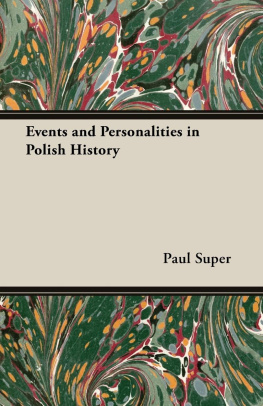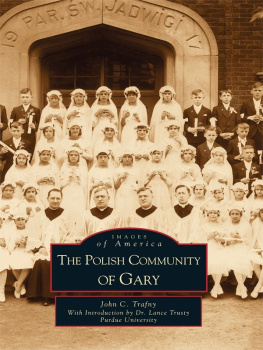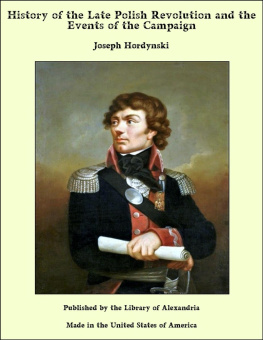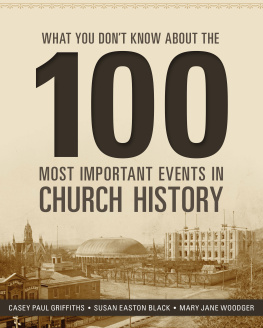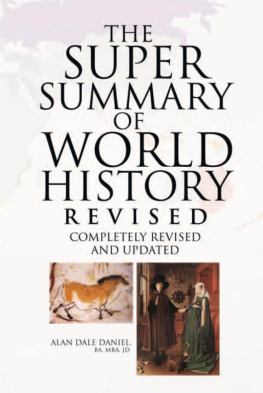PRINTED BY SHRI KISHEANSINGE CHAVDA, MANAGER, SADHANA PRESS, RAOPURA, BARODA, AND PUBLISHED BY MAURICE FRYDMAN FOR THE INDO-POLISH LIBRARY, BOMBAY. 18-7-44.
EVENTS AND PERSONALITIES
IN POLISH HISTORY
BY
PAUL SUPER
GENERAL DIRECTOR OF THE POLISH Y.M.C.A.
THE INDO-POLISH LIBRARY, BOMBAY.
First Published in Poland, 1936.
Reprinted in India 1944.
Sole distributors for India:
PADMA PUBLICATIONS LTD.
SIR PHIROZESHAH MEHTA ROAD, BOMBAY.
To
Margaret L. Juper
Co-operator, Research Worker and Translator of
Polish, Latin, German and French Materials
in our, long and continuing study of
Polish History
ON THE PRONUNCIATION OF POLISH NAMES
It has seemed best to the writer to give Polish names, with but few exceptions, in Polish spelling; hence a few suggestions as to pronunciation.
a | is the broad a as in art or father. |
c | is ts, except as follows, but it is never k. |
c | before i is ch. |
ch | is a strongly aspirated h. |
cz | is the English ch. |
dz | is the English j as in jump. |
e | is short as in bed. |
i | is ee. |
j | is our y, so Jan is pronounced Yan. |
l | the Polish l is rounder and more liquid than ours, and when crossed like a t (l) it resembles our w. |
o | is between our o and aw. |
v | is the English r as in room, but never as in short. |
rs | is like the French j in Jean or English si in vision. |
s | before i is sh. |
sz | is sh. |
u | is the English oo as in moon. |
w | is v. |
y | is a short i, never as in sky. |
z | is as in the English alphabet. There are two other kinds of z but they do not occur in this booklet. |
Each vowel is pronounced separately as a rule. Always accent the next to the last syllable.
Boleslaw | is Bo-le-swav. The 2nd l is crossed. |
Jadwiga | is Yad-vee-ga. |
Jagiello | is Ya-gee el-wo. Crossed ls, hard to get; better just call it Ya-gee el-lo. |
Kazimierz | is Ka-zhee-mee erzh. |
Kosciuszko | is Kos-tsiush-ko. |
Matejko | is Ma-tay-ko. |
Mickiewiz | is Mits-keeay-vich. |
Mieszko | is Mee esh-ko. |
Pulaski | is Poo-wa-ski. |
Sienkiewicz | is Shee en-keeay-vich. |
Sobieski | is So-bee e-ski. |
Stanislaw | is Sta-ni-swav; i as in is. |
Wilno | is Veel-no. |
Wit Stwosz | is Veet Stvosh. |
Wladyslaw | is Vwa-di-swav. Crossed ls; i as in is. |
Zygmunt | is Zig-munt; i as in is. |
The Polish ski ending family names means of, like the French de and the German von.
CHAPTER 1
DURING THE RISE OF POLAND
TENTH TO FIFTEENTH CENTURY
THE CONVERSION OF POLAND TO CHRISTIANITY [966 A. D.]
The Polish people enter into recorded history with the conversion of their ruler Mieszko to Christianity in the year 966 A. D., this enlightened leader bringing his people with him into the family of Christian nations. With this event Poland emerges from among the Slavic tribes occupying the areas east of the Elbe and becomes enrolled among the historic and civilized countries of Europe.
Both the causes and the consequences of that act are of more than purely Polish interest.
As far back as Charlemagne there had begun an expansion of the Teutonic nations toward the east. This is that vast movement called the Drang nach Osten, the pressure toward the east. The Slavs between the Elbe and the Oder, less warlike, smaller in stature than the Teutons, not well organized, relatively ill armed, were slowly subjugated.
When Otto I of Saxony was crowned Emperor in 962 his already great power so enhanced that he became a menace to all the Slavs east of him. Mieszko soon saw that the only means of preventing the enslavement or extermination of his people lay in the same alliance that had so strengthened Otto, that with the Church. For as long as the Poles were heathen they were the legitimate prey of any Christian king, but as Christians they would at once be on a par with other western nations. Their entering the fold of the Catholic Church would deprive Otto of a valid excuse for incursions into their territory, win the sympathy of the other nations of Christendom, and gain the favour and advocacy of the Pope. By calling in monks from France and Italy they would forge valuable ties with those lands.
These were the motives prompting Polish adhesion to the Christian Church. The results were not only good but momentous. The nation became really and increasingly Christian. In the first centuries of Christianity the people received the light of Latin learning and the advantages of western civilization, largely from the hands of Benedictine, Eremite, and Cistercian monks from the monasteries of Lige, Cluny, and Monte Casino. The Pope became their advocate.
But two results even more far-reaching than these were determined by this step. First, in deciding to be Catholic, Poland decided to face west. The Czechs had already taken the same step. But when Poland also became Roman Catholic, a second, less desirable effect was permanently to divide Slavdom, for most of the other Slav nations, the Russians, the Bulgarians, and the Serbs, are of the Eastern Orthodox faith. However, notwithstanding certain important consequences resulting from the division of the Slavs in the matter of religion, it was good for all the world that in accepting the Christian faith Poland came in through the western and Latin door and not through the more backward Orthodox one, with its absolutism, Greek alphabet, and decaying Byzantinism.

